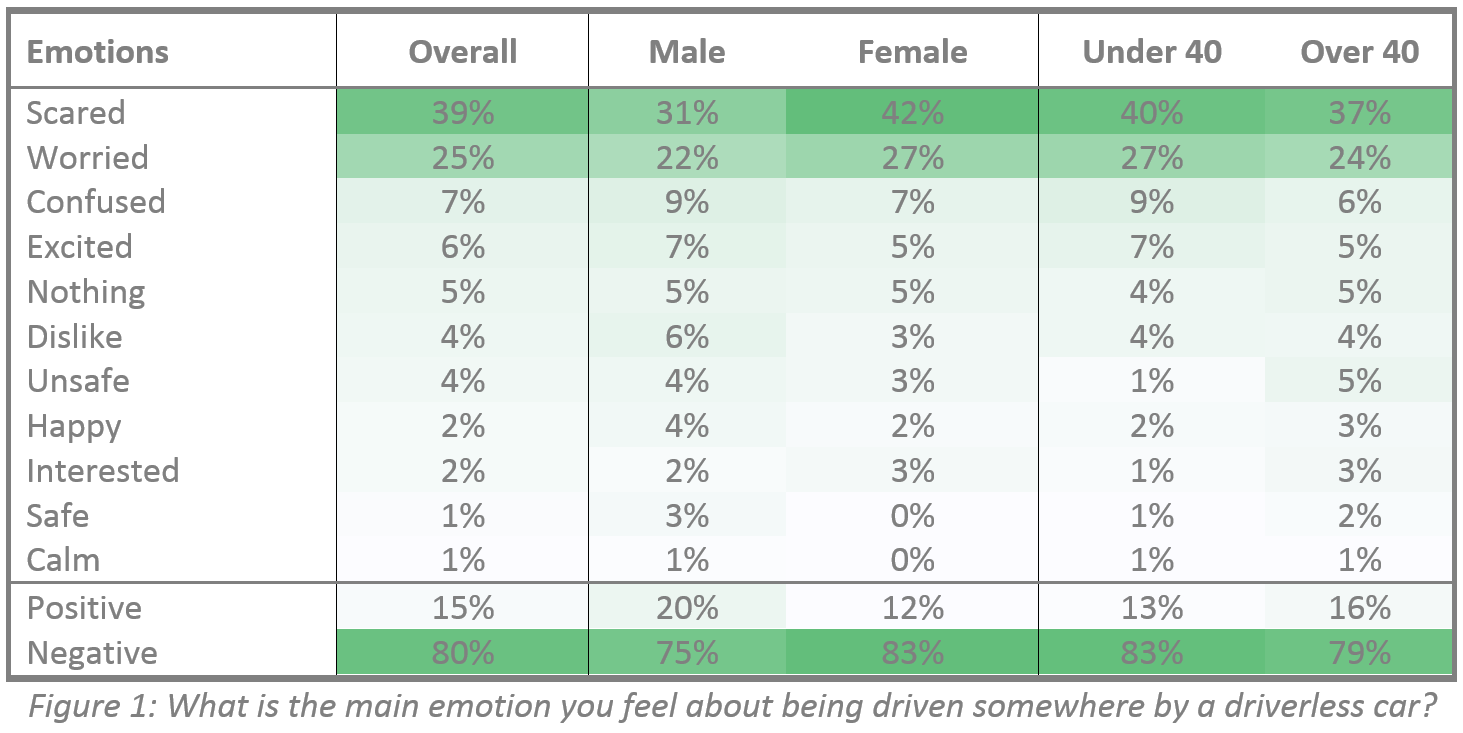Emotalizer: Driverless Cars
Posted: 10/04/2018

“More people fear Driverless Cars than the prospect of Donald Trump being President”

Historically, people have been sceptical towards new technologies. Scientists believed Thomas Jefferson’s invention of the light bulb was “irrelevant” while people feared traveling by train, because they believed the body is not designed to travel at such speeds. Since tech giants are currently testing autonomous cars, we asked the British public their feelings about being driven by a driverless car.
The results continue the pattern of initial dislike for new inventions. As high as 80% of all respondents show a negative emotion towards the idea of a driverless car. This topic is clearly emotive, as it evoked a neutral response in only 5% of our sample, the lowest level of apathy seen in our historical data. The most frequently cited emotions are Scared and Worried. Somewhat counter-intuitively, it seems the younger age group associate driverless cars with more negative emotions.
The strength of the negative reaction to this topic can be appreciated by comparing it to topics we’ve researched in the past. So far only the concept of North Korea being in possession of nuclear weapons triggered a more negative reaction of 86%, also driven by the emotions Scared and Worried. Even the prospect of Donald Trump becoming President evoked a less negative reaction at 77%.
We also asked more specific questions to understand whether this general level of dislike could be impacted by increased utility or danger in certain situations. Contrary to this hypothesis, there is little variation in emotions evoked by being driven home from the pub, being driven on a motorway or just being driven in general by a driverless car.
Research from Harvard professor Calestous Juma1 shows that people tend to be sceptical and even scared of innovations not simply because the technology behind them is unknown, but because innovation often means losing a piece of your identity or lifestyle. While autonomous vehicles are expected to lower the cost of travel and make commuting easier, the safety risks and expected changes to our lifestyle seem to outweigh these advantages. The recent accident where a self-driving car killed a pedestrian in Arizona may serve as confirmation for those who feel this technology is not ready to become a part of our lives.
1 Juma, Calestous, Innovation and Its Enemies- Why People Resist New Technologies, New York: Oxford University Press, 2016